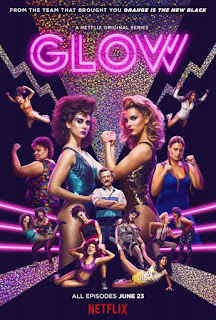Opinion Piece - Cinematic Desire and How it Powers Film
This is going to be one of those posts that requires a bit of explanation but here we go. Almost two months ago now, I attended a screening of The Miseducation of Cameron Post, a really wonderful film that I didn't get around to reviewing but it may make it to my end of the year list. Anyway, the film really touched me and director Desiree Akhavan was there afterwards for a Q and A. She was an absolute delight and I will be supporting all her upcoming projects (including her current Channel 4 series The Bisexual) but because of how I felt, I wanted to ask her how she was able to create a story where I shared few things with the main character but was still able to find myself in her. I may have phrased it poorly but Akhavan gave me an answer I have been unable to stop thinking about since; desire. Quite simply, we relate to characters in films because they all have a desire for something and that's a basic human drive we all share. With that in mind, I want to put that to the test and see if that explains the intangible reasons I love some of the films I love.
I'll start with Cameron Post seeing as it's what inspired this post, even if it isn't a favourite. For Cameron, her desires are essentially that she wants to be loved for who she is. She's at a gay conversion camp because she's been forced to but her decision to stay for most of the film is about that tug of war between who she wants to love her. Either she stays because she wants her family to love her and not feel ashamed, or she goes because she wants to go back to her girlfriend and feel that physical connection. Eventually she lands somewhere between the two (without to spoil too much) but the reason I stayed on her journey is because despite not being gay, despite not being a woman, despite not being a teen in the nineties, I have that desire to be loved by my family and to feel some physical connection from someone. That takes me along to my favourite film of last year and a slowly rising all time favourite, Call Me By Your Name. For months I've puzzled over why I connect with it too much and now, I know why. I'm not gay (even if I have fallen in love with Armie Hammer), I'm not growing up in Northern Italy and I'm not doing all this in the eighties but what I share with Elio is a desire for that romantic connection. Two dudes kissing doesn't get me going but two people with this intense connection who want each other so much they can barely breathe? That's poetry on a level that anyone can connect to and I think it's why I buy into the sensuality and the longing and the desire, because I am a teenager and I am overflowing with romantic longing that needs an escape.
We're moving on before I have to start paying you all for being my therapist. The two films I've touched on so far are primarily about romantic desire but I then started thinking about if this applies to films whose main narrative thrust is not romance. The first film that came to mind was Fight Club, a famed favourite of mine and decidedly not about love. Well, you could try and do a queer reading and say it's a love story between The Narrator and Tyler Durden but for the sake of simplicity, I'll reject that for now. When it comes to desire, what Fight Club is about one man's desire to liberate himself and to embrace his masculinity. His modern life has him feeling like he's constantly asleep but never really dreaming, not quite dead but too far from alive. The one desire Edward Norton's character has is to finally feel again and for a generation of disillusioned men, that's why Fight Club hits so hard. To pick another example from just looking at my blu-ray shelf, It Comes at Night is about a whole other desire, the desire to protect. Every move Joel Edgerton makes in that film is with the explicit aim of protecting his family. It's why the house they live in is like it is, it's why he is so hesitant to trust the other family and it's why the miserable final act plays out like it does. Desire doesn't have to be warm and snuggly for it to be a huge motivator in basically every film.
What I didn't realise when I started this piece is that it's essentially a sequel to my "I'm sick of seeing characters like me" post, where I finally figured out what it is that can connect me to characters with whom I share very little. Maybe this isn't such a revelation for you but for me, it's been a big moment and I think about it after any film which I fall in love with. And hell, if this is something you've never realised before, think about it the next time you watch a film. What do the characters desire, how and why do they achieve it and does it line up with you? So thank you Desiree Akhavan for changing the way I think about films.





Comments
Post a Comment